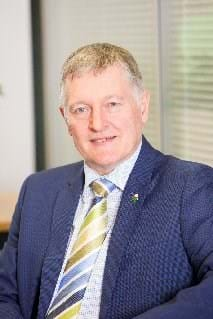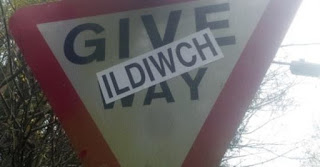Jeremy Vine criticised over attitude to Welsh language. The BBC radio host Jeremy Vine has been criticised after he appeared to suggest people in Wales should speak English instead of their mother tongue.
Earlier this year he interviewed a man from Pontypridd in South Wales who'd declared about Welsh: "I don't want to speak it, it's a horrible language.
"If you go into any pub in west Wales, or North Wales, they're all there speaking English. As soon as they hear my accent, they start changing into Welsh, so we can't understand them."
After the aftermath had seemingly died down, Radio 2 produced its review of the year, which tossed the issue back into the limelight.
In an attempt to douse the flames, Vine shared an article by BBC colleague Owen Williams in an attempt to "provide context".
But it had the opposite effect, with proud Welshmen accusing the presenter of bigotry, which he denied.
A further furore then erupted when Jeremy Vine's official Twitter feed responded to a message, which compared speaking the Welsh language in Wales to using French in France, by asking: "Is France in the UK?"
The tweet has since been deleted.
Replying to a Twitter user who suggested the presenter apologised or explained the tweet, Vine insisted : "My tweet was misconstrued! I was pointing out that the listener on my show who complained about people not speaking English to him in Wales was not quite the same as a Brit in Paris who complains no-one speaks English there. Didn't mean to offend."
Plaid Cymru Welsh Assembly member Sian Gwenllian, whose Arfon constituency is in the Welsh-speaking heartland of north west Wales, invited Vine to visit the area "so that you can understand what it means to live in a community where Welsh is the day-to-day medium of communication".
"Perhaps then you will see why your recent remark about the Welsh language is profoundly insulting to our identity, culture and way of life."
Source
Earlier this year he interviewed a man from Pontypridd in South Wales who'd declared about Welsh: "I don't want to speak it, it's a horrible language.
"If you go into any pub in west Wales, or North Wales, they're all there speaking English. As soon as they hear my accent, they start changing into Welsh, so we can't understand them."
After the aftermath had seemingly died down, Radio 2 produced its review of the year, which tossed the issue back into the limelight.
In an attempt to douse the flames, Vine shared an article by BBC colleague Owen Williams in an attempt to "provide context".
But it had the opposite effect, with proud Welshmen accusing the presenter of bigotry, which he denied.
A further furore then erupted when Jeremy Vine's official Twitter feed responded to a message, which compared speaking the Welsh language in Wales to using French in France, by asking: "Is France in the UK?"
The tweet has since been deleted.
Replying to a Twitter user who suggested the presenter apologised or explained the tweet, Vine insisted : "My tweet was misconstrued! I was pointing out that the listener on my show who complained about people not speaking English to him in Wales was not quite the same as a Brit in Paris who complains no-one speaks English there. Didn't mean to offend."
Plaid Cymru Welsh Assembly member Sian Gwenllian, whose Arfon constituency is in the Welsh-speaking heartland of north west Wales, invited Vine to visit the area "so that you can understand what it means to live in a community where Welsh is the day-to-day medium of communication".
"Perhaps then you will see why your recent remark about the Welsh language is profoundly insulting to our identity, culture and way of life."
Source



















































